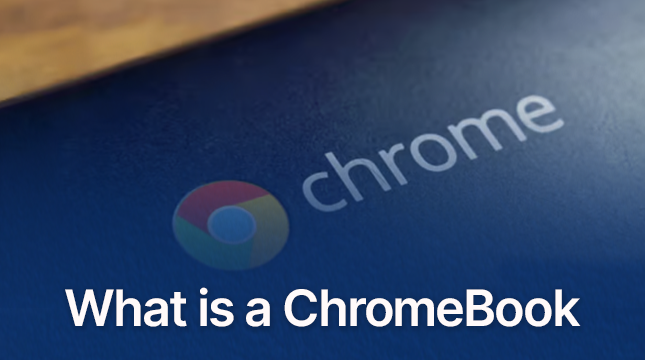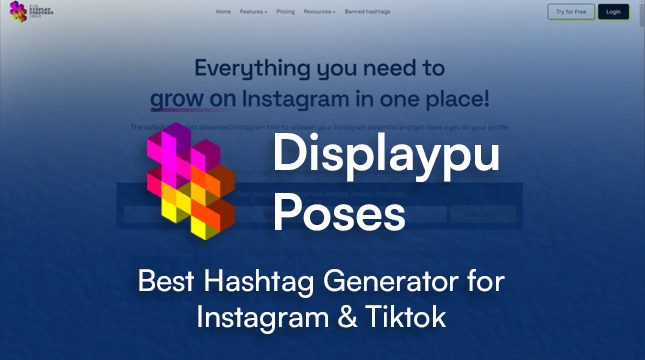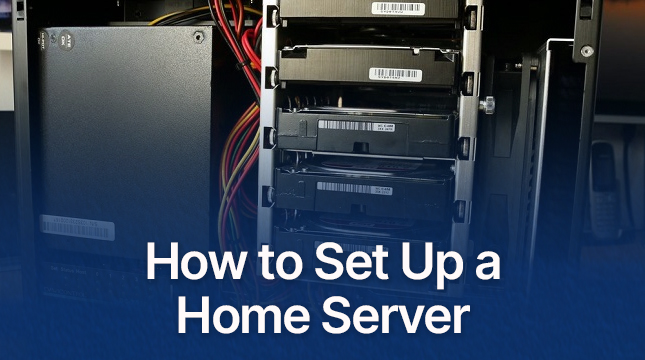This website uses cookies so that we can provide you with the best user experience possible. Cookie information is stored in your browser and performs functions such as recognising you when you return to our website and helping our team to understand which sections of the website you find most interesting and useful.
What is a Chromebook? A full Guide to Features, Uses and Limitations
Written by
NetizensJuly 29, 2024
6 min read

Introduction
A Chromebook is a laptop that runs on Google’s Chrome OS, designed for simplicity and efficiency with a focus on web-based applications and cloud storage. It offers a lightweight, secure computing experience with automatic updates and long battery life, making it popular in educational settings and among budget-conscious users. While ideal for those who primarily work online, Chromebooks may have limitations like reduced offline functionality and limited software compatibility compared to traditional laptops.
1. What is a Chromebook?
A Chromebook is a laptop that operates using Chrome OS, an operating system developed by Google. Unlike traditional operating systems like Windows or macOS, Chrome OS is built around the Google Chrome web browser. This means that most of the applications and services you use on a Chromebook are web-based.
2. What is a Chromebook Good For and Who Uses Them?
Chromebooks are particularly good for:
- Education: Widely used in schools for student assignments, research, and collaboration. Many schools use Chromebooks because they are cost-effective, easy to manage, and support Google’s educational tools like Google Classroom. Teachers and educational institutions find Chromebooks useful for their simplicity and integration with educational apps.
- Business Use: Small businesses and remote workers might use Chromebooks for their affordability and security.
- Web Browsing: They excel in web browsing due to their lightweight OS and Chrome browser.
- Productivity Tasks: Perfect for using Google Workspace tools like Docs, Sheets, and Slides.
- Media Consumption: Great for streaming videos, music, and online games.
- Cloud Computing: Excellent for those who use cloud services for storage and applications.
- Travel: Due to their lightweight design and long battery life, they are ideal for travelers.
- General Use: People who primarily use web applications, like browsing, email, and online productivity tools, may find Chromebooks sufficient for their needs.
3. What is a Chromebook Laptop and Computer?
A Chromebook laptop is a portable computer that runs on the Chrome OS operating system. It looks and functions like a regular laptop but is designed primarily for use with an internet connection, leveraging web-based applications and cloud storage.
A Chromebook computer refers to any device running Chrome OS, which includes not only laptops but also desktop versions called Chromeboxes and all-in-one designs known as Chromebases. These devices are optimized for web-based tasks and cloud computing, offering a lightweight and efficient alternative to traditional computers.
4. What is a Chromebook vs. Laptop?
- Operating System: Chromebooks use Chrome OS, while traditional laptops might use Windows, macOS, or Linux.
- Software: Chromebooks rely on web apps and Android apps, whereas traditional laptops can run a wider range of software, including desktop applications.
- Performance: Chromebooks often have lower hardware specs because Chrome OS is lightweight, whereas traditional laptops might have more powerful specs for demanding tasks.
- Storage: Chromebooks typically have less local storage, focusing more on cloud storage solutions.
6. What is a Chromebook Plus?
Chromebook Plus refers to a category of Chromebooks that meet certain performance standards set by Google. These devices typically offer:
- Higher Performance: Better processors and more RAM compared to standard Chromebooks.
- Enhanced Features: Features like higher-resolution screens, improved build quality, and sometimes more storage.
- Extended Support: More frequent updates and longer support lifespan.
7. What is a Chromebook Made Of?
- Materials: Chromebooks are made from a variety of materials, including plastic, aluminum, and sometimes magnesium alloy for higher-end models.
- Components: They include typical laptop components like processors (often ARM or Intel), RAM, SSD storage, batteries, and displays.
- Design: Some models feature touchscreens and convertible designs (2-in-1), allowing them to be used as tablets.
8. Chromebook Operating System (OS)
This is the operating system that Chromebooks use. It’s designed to be lightweight and fast, with most applications running in the Chrome browser or as web apps. It’s also frequently updated and maintained by Google.
9. Chromebook Features
- Web-Based: Most apps are cloud-based. This means you need an internet connection to use many of the applications effectively.
- Google Integration: Tight integration with Google services like Google Drive, Gmail, and Google Docs.
- Automatic Updates: Chrome OS updates itself automatically in the background, keeping the system secure and up-to-date.
- User Interface: The interface is simple, with a taskbar and app launcher similar to a mobile device.
10. Chromebook Storage
- Local Storage: Chromebooks generally come with limited local storage, often ranging from 16GB to 128GB. This is because they are designed to use cloud storage more extensively.
- Cloud Storage: Google Drive is heavily integrated, offering cloud storage where you can save files and access them from any device.
11. Chromebook Security
- Sandboxing: Applications run in isolated environments to prevent them from affecting the rest of the system.
- Verified Boot: Checks for any tampering with the OS during startup and restores it if necessary.
- Regular Updates: Chrome OS receives regular updates that include security patches.
- Data Encryption: Data stored on the device and in Google Drive is encrypted.
12. Chromebook Battery Life
- Longevity: Chromebooks are known for their long battery life. Depending on the model, battery life can range from 8 to 12 hours or more on a single charge.
- Power Efficiency: Chrome OS is optimized for power efficiency, which helps extend battery life.
13. Chromebook Limitations
- Offline Functionality: While there are offline apps available, many features and applications require an internet connection.
- Software Compatibility: Traditional desktop software (like Adobe Photoshop or some specialized business applications) is not natively available, though there are web-based alternatives and some support for Android apps.
- Hardware Variability: Chromebooks come in a range of specs, but lower-end models might have limited performance compared to higher-end laptops.
14. Chromebook Price
- Cost Range: Chromebooks are generally more affordable than traditional laptops. Prices can range from around $200 to $800 or more, depending on the brand, build quality, and features.
- Budget Models: Basic models are quite inexpensive and suited for light use.
- Premium Models: Higher-end models with better performance, build quality, and additional features will cost more.
15. Additional Details
- Touchscreen Options: Some Chromebooks feature touchscreens and even 2-in-1 designs that can be used as tablets.
- Android Apps: Many Chromebooks support Android apps, expanding their functionality beyond web apps.
- Linux Support: Some models offer support for Linux applications, allowing for a wider range of software options.
Learn about “How to Take a Screenshots and Screen Record on your ChromeBook“

Let's Start Your Project
Get free consultation for your digital product idea to turn it into reality!
Get StartedRelated Blog & Articles

Netizens
October 7, 2024
Quantum Computing: A Leap into the Future and Its Impact on Technology
Quantum Computing Developments: Progress in Quantum Computing and Its Potential Impact on Technology What is Quantum

Netizens
March 5, 2024
display purposes.com- a free hashtag generator for Instagram
display purposes.com social media has become an indispensable tool for businesses and individuals alike to connect

Netizens
October 7, 2024
How to Set Up a Home Server: A Beginner’s Guide
Introduction A home server can be a valuable tool, whether you’re using it for personal projects




